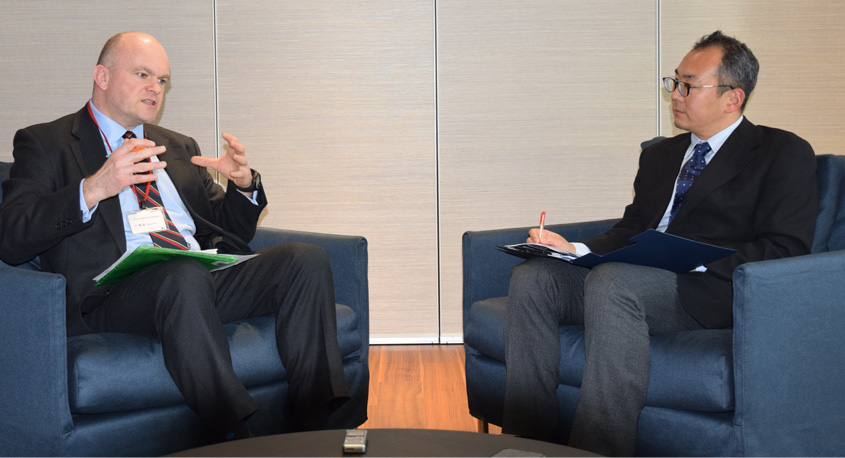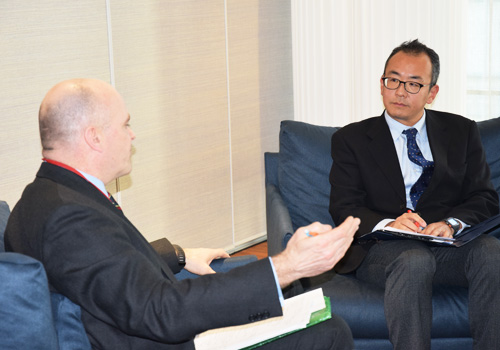Mr. Nishida: Can you tell us about the mission of the Development, Concepts and Doctrine Centre (DCDC) and explain why you have come to Japan?
Brigadier Murchison: Thank you very much for inviting us here today to share some of our work. I'm a member of the Development, Concepts and Doctrine Centre, which is a think tank within the UK Ministry of Defence. We are responsible for the conceptual component of policymaking, with the scope of our work straddling from 30 years down to 3 minutes. After the Iraqi inquiry in 2003, there was an emphasis by policymakers on evidence-based decision-making rather than decision-based evidence making. We are the organization that helps improve decision-making at all levels.
Within DCDC, there are three main elements: the Doctrine Team, which looks at joint operational-level decision-making for the command and staff; the Concepts Team, which supports balance investment decision-making; and I head up the Futures Team, which supports policy and the strategy development within the Ministry of Defence. We are quite a small team of only about 60 people, 50% military and 50% civilian. Therefore, in order to cover the breadth of work required, we need to build a network with global partners, academia, and other think tanks. To this end, we have come for an Indo-Pacific regional visit to share our Global Strategic Trends report and to better understand the different perspectives in the region. We are visiting Japan, Singapore, Australia, and New Zealand over about a two to three-week period to better understand the richness of the insights in the region as well as the perspectives of those who are here rather than back in the UK.
Mr. Nishida: We are honored to be the first stop on your trip. You mentioned Global Strategic Trends (GST). Can you tell us about how you use the GST series and where this report is located within the UK government's decision-making structure?



